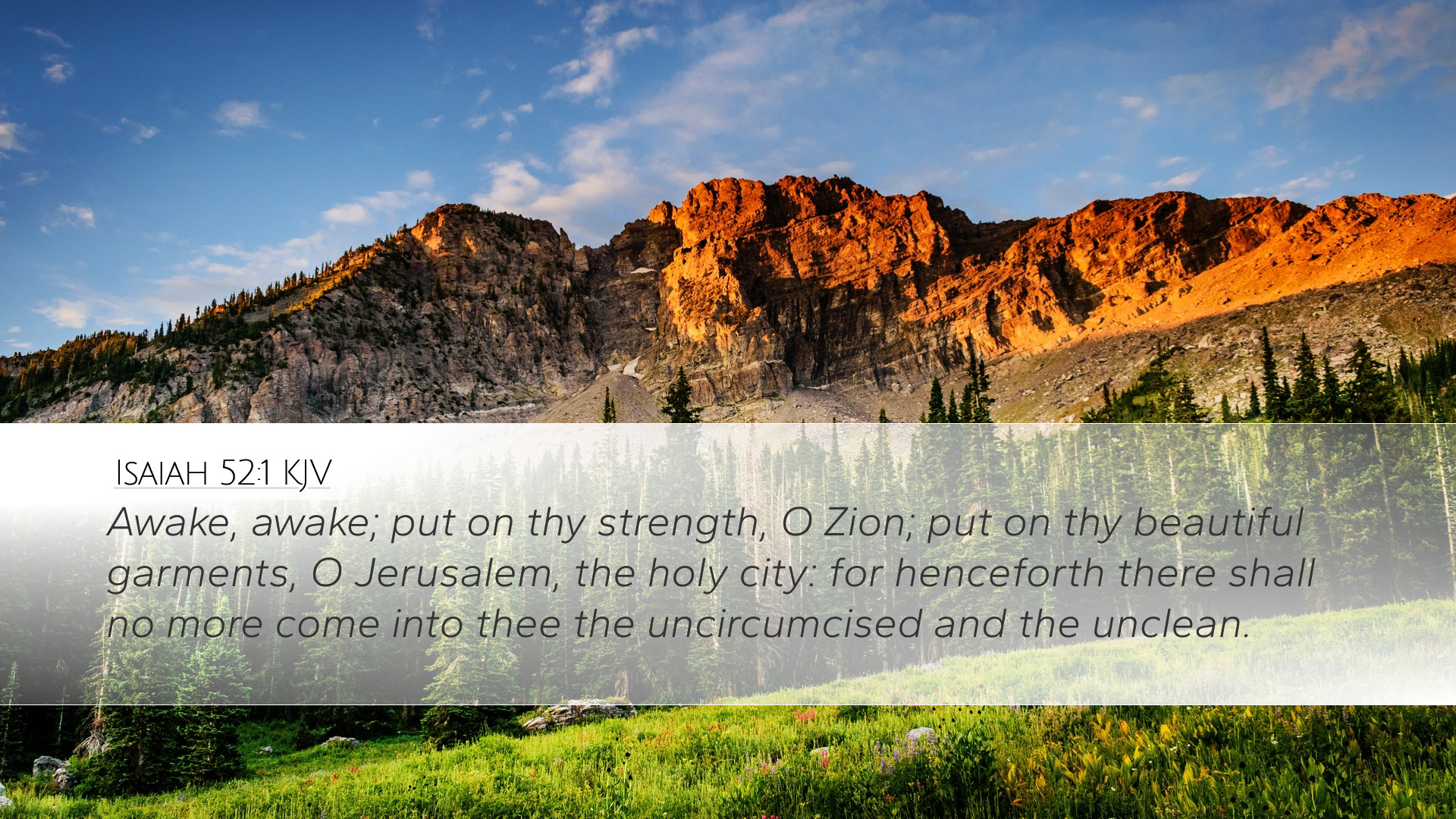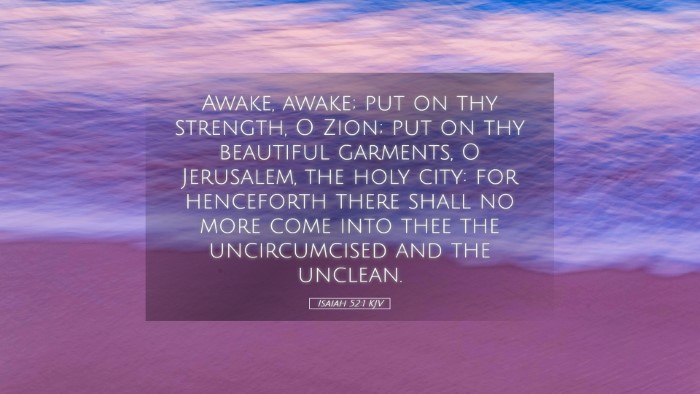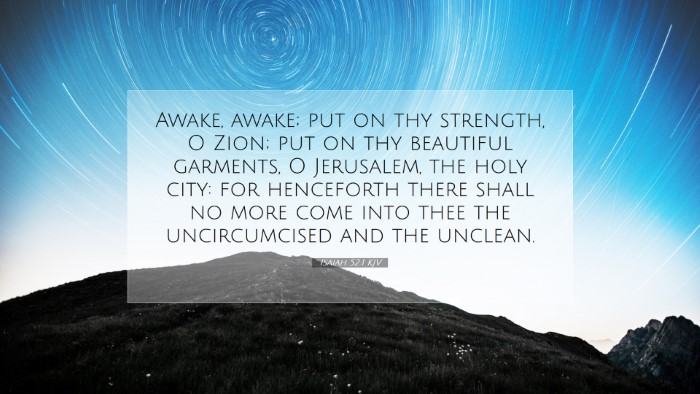Bible Commentary on Isaiah 52:1
Verse: "Awake, awake; put on thy strength, O Zion; put on thy beautiful garments, O Jerusalem, the holy city: for henceforth there shall no more come into thee the uncircumcised and the unclean."
Isaiah 52:1 is a stirring call to Israel, urging the people to awaken from their spiritual slumber and prepare for restoration and redemption. In this verse, we find profound implications for both the historical context of the Jewish people and its spiritual relevance for believers today.
Historical Context
Matthew Henry describes this passage as a prophetic announcement addressed to Zion, which represents the whole church of God's people. The historical context is paramount; it refers to the time when the Israelites were in Babylonian captivity, longing for the restoration of their homeland and the re-establishment of worship. The call to "awake" signifies the need for spiritual renewal and preparation for the impending deliverance.
Call to Awakening
Albert Barnes notes that the repetition of "awake" emphasizes urgency. The people of Israel are in a slumber of despondency and despair. This summons to awaken is both literal and metaphorical, seeking to stir them from their collective lethargy and to instill hope in God's forthcoming promise of redemption and strength.
- Spiritual Laziness: The exhortation serves as a reminder that spiritual complacency must be overcome. Just as the Israelites were encouraged to wake from their captivity, modern believers are urged to shake off lethargy and rise to their identity in Christ.
- Preparation for Renewal: The phrase "put on thy strength" indicates a call for readiness to embrace God’s promises. The strength mentioned here refers not to physical power but to spiritual vigor that comes from trust and reliance on God.
Putting on Beautiful Garments
Adam Clarke interprets the "beautiful garments" as emblematic of holiness, righteousness, and the glory of God’s presence. This could also reflect the divine favor reflectively dubbed upon Jerusalem as she is restored:
- Dress of Righteousness: Just as priests wore special garments while ministering before the Lord, the "beautiful garments" signify being clothed in righteousness. Today, believers are called to don the virtues of Christlikeness, embodying His holiness through their lives.
- Restored Identity: These garments represent not only physical restoration of the temple and city but also the reconnection of the people with their identity as God’s chosen nation.
The Holy City
The reference to "the holy city" is of critical importance. Henry elaborates on the sanctity attached to Jerusalem, emphasizing that it is a symbol of God’s covenant relationship with His people. Jerusalem signifies the dwelling place of God's glory and the place from which His people are called to reflect His light to the nations.
Promise of Purity
The latter part of the verse, "for henceforth there shall no more come into thee the uncircumcised and the unclean," serves as a promise of purification. Barnes explains that this was particularly significant given the historical context of unclean influences infiltrating Israel. The prophecy asserts that in the restoration, external defilements will be eradicated, securing a holy and pure community among God's people.
- Exclusivity of Holiness: This reflects the broader biblical theme of holiness where God’s people must remain distinctively set apart from the world.
- Judgment on Oppressors: There is an implicit acknowledgment of divine judgment on those who oppress God’s chosen. God assures His people that the age of such oppression is coming to a close.
Theological Implications
From a theological standpoint, Isaiah 52:1 serves as a pivotal verse that underscores the themes of restoration, redemption, and the transformative power of God’s promises. The invitation to awaken also serves as a call for introspection regarding one’s spiritual status:
- Spiritual Awakening: The message transcends its immediate historical context. It calls all contemporary believers to awaken from the spiritual sleep that can often be induced by cultural distractions and worldly concerns.
- Embracing God’s Strength: As believers, the reminder to "put on thy strength" encourages reliance on the strength that comes from God. This signifies that in our weakness, His power is made complete (2 Corinthians 12:9).
Conclusion
Isaiah 52:1 is a multifaceted verse with profound implications for the church today. Through the lens of public domain commentaries, it invites reflection on spiritual readiness, the beauty of holiness, and the purity of the community of faith. As we understand the depth of this passage, may we be compelled to "Awake!" and embody the strength and righteousness bestowed upon us as children of God.


